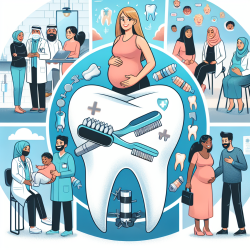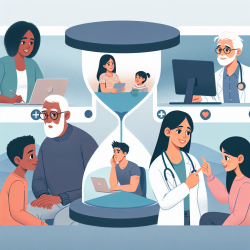Introduction
In the ever-evolving landscape of mental health care, practitioners are constantly seeking innovative methods to improve service delivery, especially for youth facing mental health and substance use challenges. The research article titled "Integrated Collaborative Care Teams to Enhance Service Delivery to Youth with Mental Health and Substance Use Challenges: Protocol for a Pragmatic Randomised Controlled Trial" presents a groundbreaking approach that could transform the way we address these issues. This blog delves into the research findings and explores how practitioners can implement these outcomes to enhance their skills and service delivery.
The ICCT Model: A Game-Changer
The Integrated Collaborative Care Team (ICCT) model is designed to address the prevalent gaps in mental health and addiction (MHA) services for youth. With approximately 20% of adolescents affected by MHA disorders, timely and evidence-based interventions are crucial. The ICCT model offers a rapid, stepped-care approach in a youth-friendly environment, aiming to improve outcomes, reduce wait times, and be more cost-effective.
Key Components of the ICCT Model
- Solution-Focused Brief Therapy (SFBT): A strengths-based approach that helps youth find concrete solutions to their challenges.
- Dialectical Behavioral Therapy (DBT): Skills groups focused on emotional regulation, distress tolerance, and interpersonal effectiveness.
- Peer Support: Enhances hope, empowerment, and social functioning while reducing stigma.
- Family-Focused Interventions: Engages family members in the therapeutic process, fostering a supportive environment.
- E-Health Support Tools: Provides accessible resources and crisis support through digital platforms.
Implementation and Benefits
Practitioners looking to implement the ICCT model should focus on collaboration with community agencies, hospitals, and stakeholders. The model's success hinges on its ability to integrate services in a seamless manner, offering a comprehensive care pathway for youth. The benefits include:
- Improved youth functioning and clinical outcomes.
- Increased satisfaction and engagement among youth and families.
- Cost-effectiveness through efficient resource utilization.
- Empowerment of youth and families in the care process.
Encouraging Further Research
While the ICCT model presents a promising framework, it is essential for practitioners to engage in further research to tailor interventions to specific community needs. By participating in studies and contributing to the body of evidence, practitioners can refine and adapt the model to achieve optimal outcomes.
Conclusion
The ICCT model represents a significant advancement in youth mental health care, offering a holistic and integrated approach to service delivery. By embracing this model, practitioners can enhance their skills and provide more effective care to youth facing mental health and substance use challenges.
To read the original research paper, please follow this link: Integrated collaborative care teams to enhance service delivery to youth with mental health and substance use challenges: protocol for a pragmatic randomised controlled trial.










